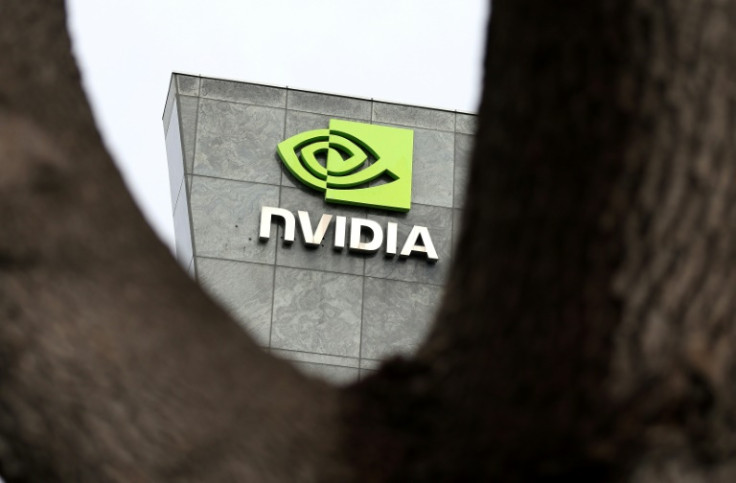Nvidia Stock Skyrockets As It Reaches $4 Trillion Valuation, Surpassing Apple and Microsoft

Popular tech company Nvidia's stock is experiencing yet another significant surge as it officially reached a $4 trillion (£2.94 trillion) valuation, becoming the first public company to do so and overtaking legacy tech brands such as Microsoft and Apple.
This new milestone comes amidst a continued demand for chips to empower many industries, from data centres to AI infrastructures.
Surging Stocks and Valuation
Nvidia surged to an intraday record, briefly reaching said historic market capitalisation, marking the first time any public company has achieved that milestone.
Shares climbed approximately 2.4–2.7%, touching highs between $163.93 (£120.58) and $164.37 (£120.90) before pulling back to close around $164.32 (£120.87). This remarkable rally adds to a 74% rebound since April, fueled by insatiable AI-driven demand despite ongoing export challenges to China.
Analysts, including Wedbush's Dan Ives, have labelled the feat a milestone in the AI era, projecting that Microsoft may soon join the $4 trillion club. 'This tech bull market is still early, being led by the AI Revolution,' he said.
More on Nvidia's Latest Performance
In its fiscal Q1 2026 (ending April 27, 2025), Nvidia reported revenue of $44.1 billion (£32.44 billion), up 69% year-over-year, led by Data Centre sales of $39.1 billion (£28.76 billion), a 73% increase.
The company also incurred a $4.5 billion (£3.31 billion) inventory charge due to U.S. export restrictions on H2O chips to China, with an additional $2.5 billion (£1.84 billion) in lost sales.
Despite this, adjusted gross margins remained at roughly 71.3%, and Nvidia projected $45 billion (£33.10 billion) for the next quarter, factoring in an $8 billion (£5.88 billion) headwind from China-related constraints.
Nvidia's Continued Commitment to AI
Nvidia continues to spearhead global industrial transformation through breakthroughs in AI infrastructure. At GTC Paris, CEO Jensen Huang unveiled new Blackwell-based industrial AI cloud facilities—such as a German AI factory with 10,000 GPUs—and expanded partnerships across Europe with BMW, Siemens, and Novo Nordisk to implement AI-driven design, manufacturing, and drug discovery.
On the sovereign-AI front, Nvidia has secured government contracts worldwide, fueling a projected $563 billion (£414.11 billion) data centre AI market by 2028.
Its GPUs underpin a $750 billion (£551.66 billion) surge in global data-centre investment, empowering sectors from healthcare to telecom to deploy faster, more scalable AI solutions.
'Global demand for NVIDIA's AI infrastructure is robust. AI inference token generation has surged tenfold in just one year. As AI agents become mainstream, the demand for AI computing will accelerate,' Nvidia founder and CEO Jensen Huang previously said.
GPU Business Still on Rise
Nvidia's GPU business remains the engine behind its meteoric expansion. In 2023, the company shipped 3.76 million data-centre GPUs, a 42% jump from 2022, capturing a commanding 98% market share.
Its compute segment—primarily GPUs—generated $47.4 billion (£34.87 billion) in 2024, surpassing graphics revenue and underscoring the demand driven by AI. The rapid ramp of its Blackwell architecture, now accounting for ~70% of data-centre compute sales, along with the production of around 3.7 million chips annually, fuels this momentum.
Analysts project Nvidia's AI‑GPU revenue to more than double from $100 billion (£73.55 billion) in 2024 to $262 billion (£192.71 billion) by 2030.
Expected Growth into the Future
Nvidia's meteoric rise highlights its unmatched dominance in the AI era, driven by relentless GPU innovation, record-smashing stock milestones, and transformative partnerships worldwide.
From crossing the unprecedented $4 trillion (£2.94 trillion) valuation mark to posting soaring quarterly revenues despite export headwinds, Nvidia's GPUs remain the backbone of a booming AI and data centre economy.
With powerful new Blackwell chips ramping production, sovereign AI deals expanding, and global industries—from automotive to biotech—leaning on its compute power, Nvidia is not just shaping technology's frontier but redefining the world's digital infrastructure for decades to come.
© Copyright IBTimes 2025. All rights reserved.




















